What is deep tech?
What is deep tech, how are investors involved, and what does deep tech mean when it comes to AI and quantum computing?


Ask ten people "what is deep tech?" and you’ll be given ten different definitions. Also known by names including hard tech, tough tech, or frontier tech, the term deep tech is used to describe technological innovations at the very frontiers of science, which could revolutionize their field and overcome significant challenges.

These types of technologies require patience and large investments to take off, with one recent success story found in OpenAI and its groundbreaking tool ChatGPT. Heavy investment has been necessary to buoy OpenAI through its early years as it brought generative AI into the public eye and deep tech firms often require years of up-front investment before their products make a return.
To best understand deep tech, we’ll need to look at the other types of tech surrounding it. MIT Management Global Programs researchers consider deep tech an offshoot of innovation-driven entrepreneurship (IDEs) within companies such as IBM, Meta, and Microsoft.
One of the biggest criteria is actually the innovation part of the business description. OpenAI represents deep tech in that it pioneered generative AI tools such as ChatGPT, whereas a previous unicorns such as Airbnb don't meet the criteria because their model was a new spin on an existing framework (in this case, bed and breakfast bookings).
What is a deep tech company?
Research firm Boston Consulting Group provided this criteria for a deep tech startup
- The firm is part of an innovation ecosystem such as universities, angel investment collaboratives such as Y Combinator, or R&D arms of Big Tech companies such as Meta, Google, Microsoft, and Apple.
- Long development cycles are another sign of a deep tech company. While there’s no specific number or range to quantify ‘long’ according to BCG, most deep tech companies have 10- to 15-year development cycles.
- Firms that are problem or mission-driven often turn out to be deep tech companies. Whereas the Ubers of the world tout a unique way of approaching a market with existing technology, deep tech startups have an altruistic element.
- Technological, scientific, and/or engineering discoveries are hallmarks of deep tech firms.
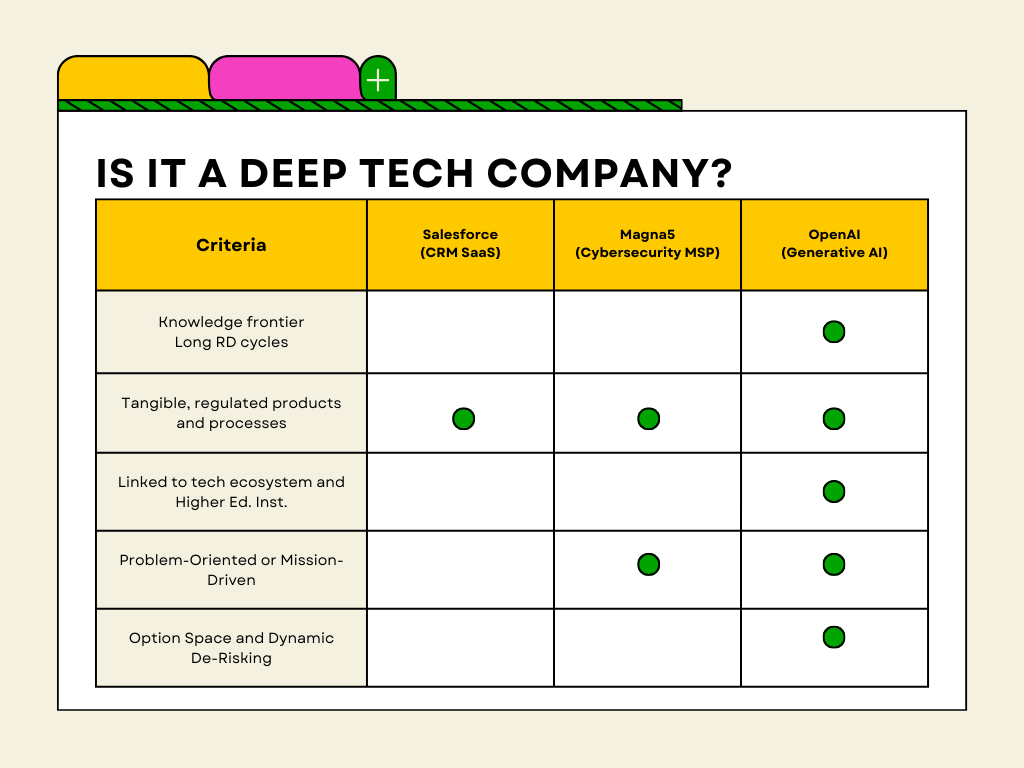
Investors fight for this clarity of definition to justify investments and mitigate or predict risks. A clear definition attracts more deep-pocket investors, thus furthering the causes deep tech startups hold dear.
Is AI deep tech? Deep tech examples
Here’s a quick rundown of the most often mentioned forms of deep tech today.
Get the ITPro daily newsletter
Sign up today and you will receive a free copy of our Future Focus 2025 report - the leading guidance on AI, cybersecurity and other IT challenges as per 700+ senior executives
Artificial intelligence
Based on what we’ve seen with the advent of generative AI, technologies seen as novel can jump to the forefront of our lives in a matter of weeks. Think back to when AI chatbots first became big in 2022. Many were amazed at what ChatGPT could do, setting off a chain reaction of fear, exorbitant investment (such as Microsoft’s $10 billion investment in OpenAI) in AI-focused startups, and tiny cottage industries around teaching, certifying, and simplifying AI.
Machine learning
In essence, machine learning (ML) remains a cornerstone of AI development. Without it, the predictive text in search engines or language translation apps wouldn’t be at your fingertips. ML ‘learns’ in three ways: supervised, unsupervised, and reinforcement. All three share the core elements of ML which include data sets, algorithms, and refinement (what we would call training).
Quantum computing
RELATED RESOURCE
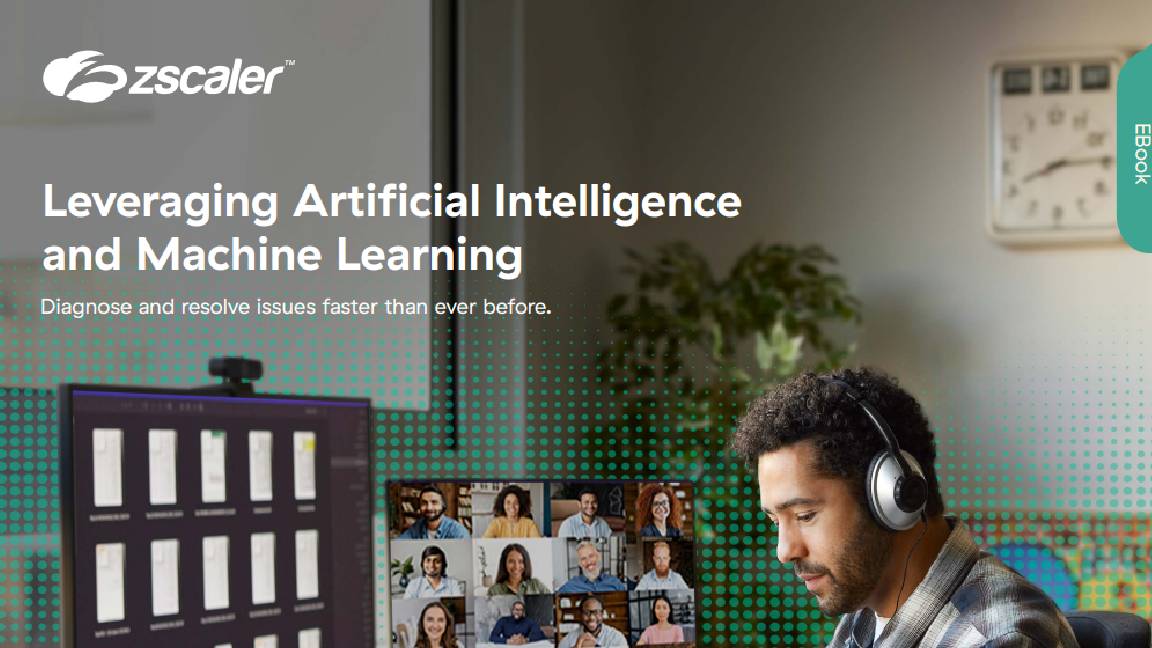
Find out how you can Improve end-user experiences and reduce ticket escalations
This corner of deep tech has been the problem child of the industry since its inception, offering great promise and heart-rending disappointments. Quantum computing can outperform classic computing by many orders of magnitude as it unlocks simultaneous computation by pushing the boundaries of physics.
Quantum computing has applications in biotechnology, where quantum computing can be used to track and even predict the behavior of diseases such as cancer, as well as to greatly accelerate machine learning and AI. Quantum computing systems are still some years off as prototypes continue to throw both predictable and unpredictable errors linked to quantum bits (qubits). But quantum computing could be closer to reality than many think and UK experts are already calling for a quantum technology taskforce to guard against the risks posed by this new deep tech area.
Robotics
Outside of flashy, sci-fi realizations of robots, autonomous systems have practical applications such as completing tasks in areas hazardous to human life. For example, repairing electrical equipment carries a high risk of shocks and arc flashes. Cutting-edge robotics is regularly shown off at the annual Consumer Electronics Show (CES) event.
Blockchain
The original purpose for the blockchain, prior to cryptocurrencies, was to provide transparency and an iron-clad, unchangeable record of financial transactions thereby democratizing financial data.
At its core, blockchain serves to create a ledger, recording transactions (of any kind) and business assets. The use cases expand to both the development of contractual agreements and cybersecurity risk tracking and prevention.
What's next for deep tech?
While we’ve listed the most well-known use cases for deep tech, the applications of the technology are endless. Other deep tech use cases include:
- MedTech: breakthrough pharmaceutical discoveries using a combination of Generative AI and cognitive platforms; robotic surgery systems, customized drugs based on one’s DNA, and smart wearables to track and predict health outcomes.
- Sustainability: breakthrough green energy technologies, tech to further adaptation to climate change, and carbon capture technologies.
- Cyber security: advanced threat research and predictive analysis, secure lending between individual parties rather than financial institutions, and AI cyber security.
- AgriTech: custom-designed proteins and production of those proteins at scale, precise and predictive agriculture to ensure the best crop selection and location, innovative fertilizers that are effective at limiting pests and are unharmful to other animals and humans.

Fashion technology and education technology also garner some investment from the deep tech investment sector.
Some deep tech startups will go the way of OpenAI, effectively commercializing deep tech. But many deep tech companies face an uphill struggle in bringing their solutions to market, as even the most interesting innovations need a compelling use case to attract investors.
Lisa D Sparks is an experienced editor and marketing professional with a background in journalism, content marketing, strategic development, project management, and process automation. She writes about semiconductors, data centers, and digital infrastructure for tech publications and is also the founder and editor of Digital Infrastructure News and Trends (DINT) a weekday newsletter at the intersection of tech, race, and gender.
-
 Bigger salaries, more burnout: Is the CISO role in crisis?
Bigger salaries, more burnout: Is the CISO role in crisis?In-depth CISOs are more stressed than ever before – but why is this and what can be done?
By Kate O'Flaherty Published
-
 Cheap cyber crime kits can be bought on the dark web for less than $25
Cheap cyber crime kits can be bought on the dark web for less than $25News Research from NordVPN shows phishing kits are now widely available on the dark web and via messaging apps like Telegram, and are often selling for less than $25.
By Emma Woollacott Published
-
 OpenAI woos UK government amid consultation on AI training and copyright
OpenAI woos UK government amid consultation on AI training and copyrightNews OpenAI is fighting back against the UK government's proposals on how to handle AI training and copyright.
By Emma Woollacott Published
-
 DeepSeek and Anthropic have a long way to go to catch ChatGPT: OpenAI's flagship chatbot is still far and away the most popular AI tool in offices globally
DeepSeek and Anthropic have a long way to go to catch ChatGPT: OpenAI's flagship chatbot is still far and away the most popular AI tool in offices globallyNews ChatGPT remains the most popular AI tool among office workers globally, research shows, despite a rising number of competitor options available to users.
By Ross Kelly Published
-
 ‘DIY’ agent platforms are big tech’s latest gambit to drive AI adoption
‘DIY’ agent platforms are big tech’s latest gambit to drive AI adoptionAnalysis The rise of 'DIY' agentic AI development platforms could enable big tech providers to drive AI adoption rates.
By George Fitzmaurice Published
-
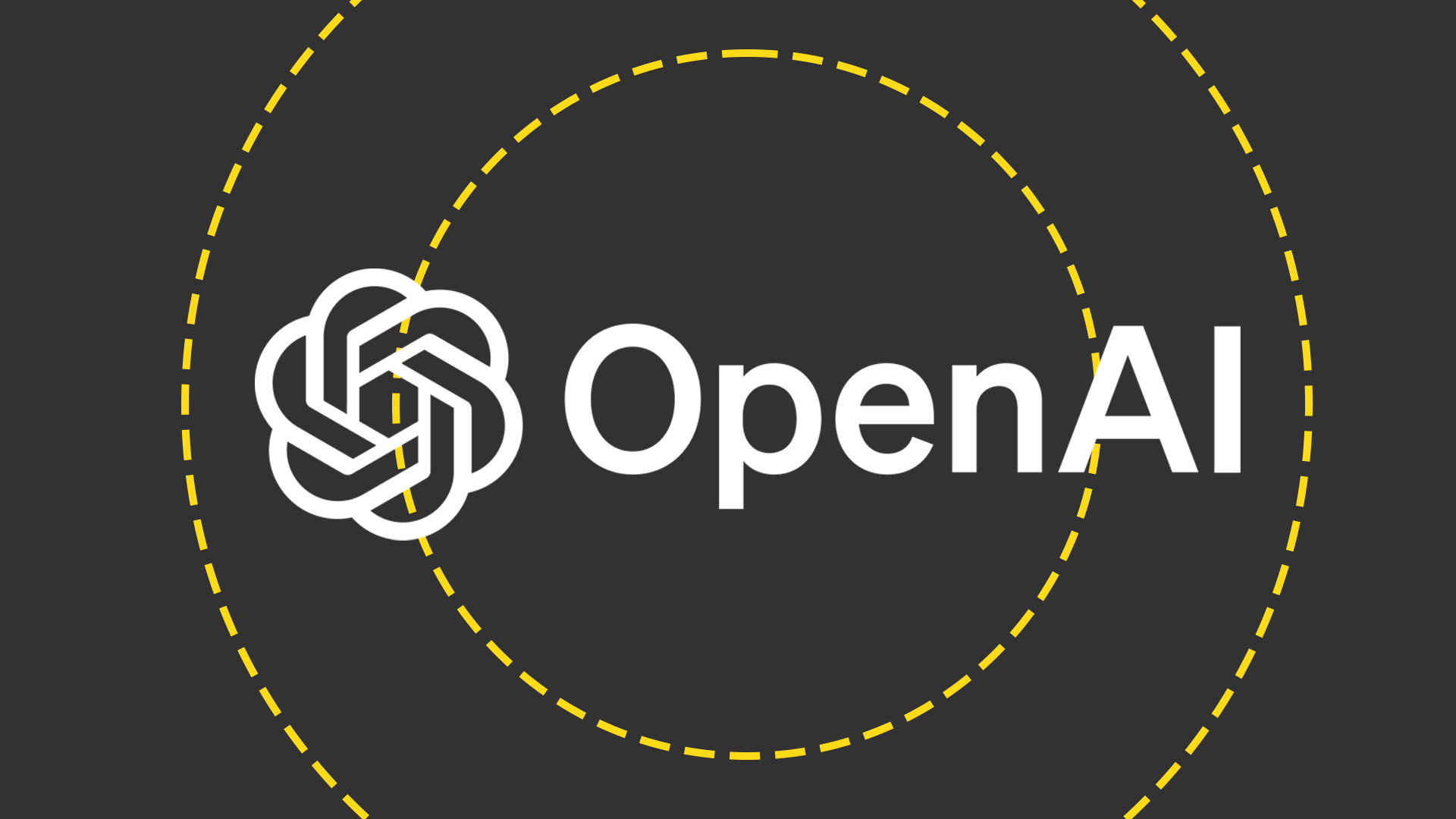 OpenAI wants to simplify how developers build AI agents
OpenAI wants to simplify how developers build AI agentsNews OpenAI is releasing a set of tools and APIs designed to simplify agentic AI development in enterprises, the firm has revealed.
By George Fitzmaurice Published
-
 Elon Musk’s $97 billion flustered OpenAI – now it’s introducing rules to ward off future interest
Elon Musk’s $97 billion flustered OpenAI – now it’s introducing rules to ward off future interestNews OpenAI is considering restructuring the board of its non-profit arm to ward off unwanted bids after Elon Musk offered $97.4bn for the company.
By Nicole Kobie Published
-
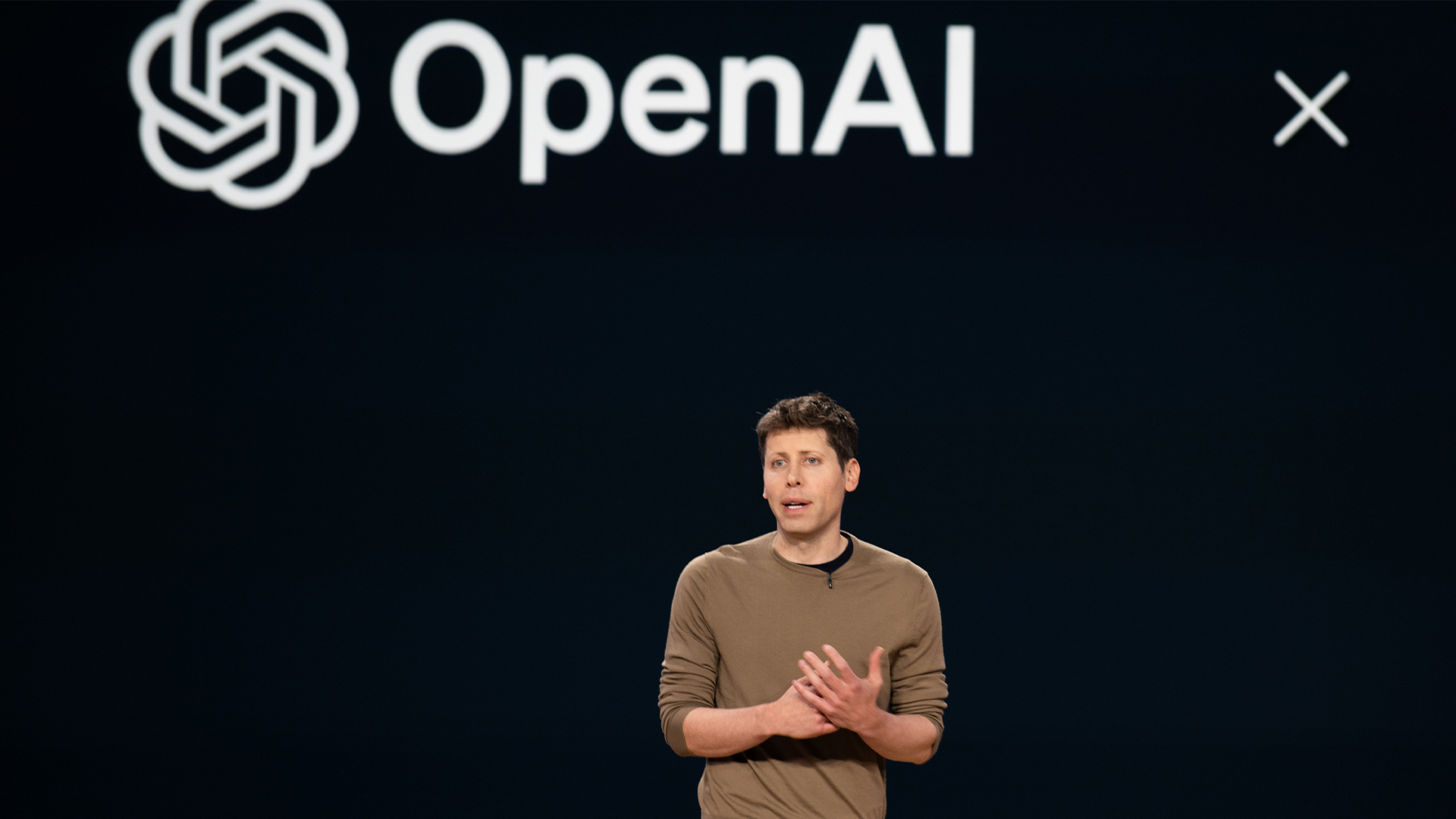 Sam Altman says ‘no thank you’ to Musk's $97bn bid for OpenAI
Sam Altman says ‘no thank you’ to Musk's $97bn bid for OpenAINews OpenAI has rejected a $97.4 billion buyout bid by a consortium led by Elon Musk.
By Nicole Kobie Published
-
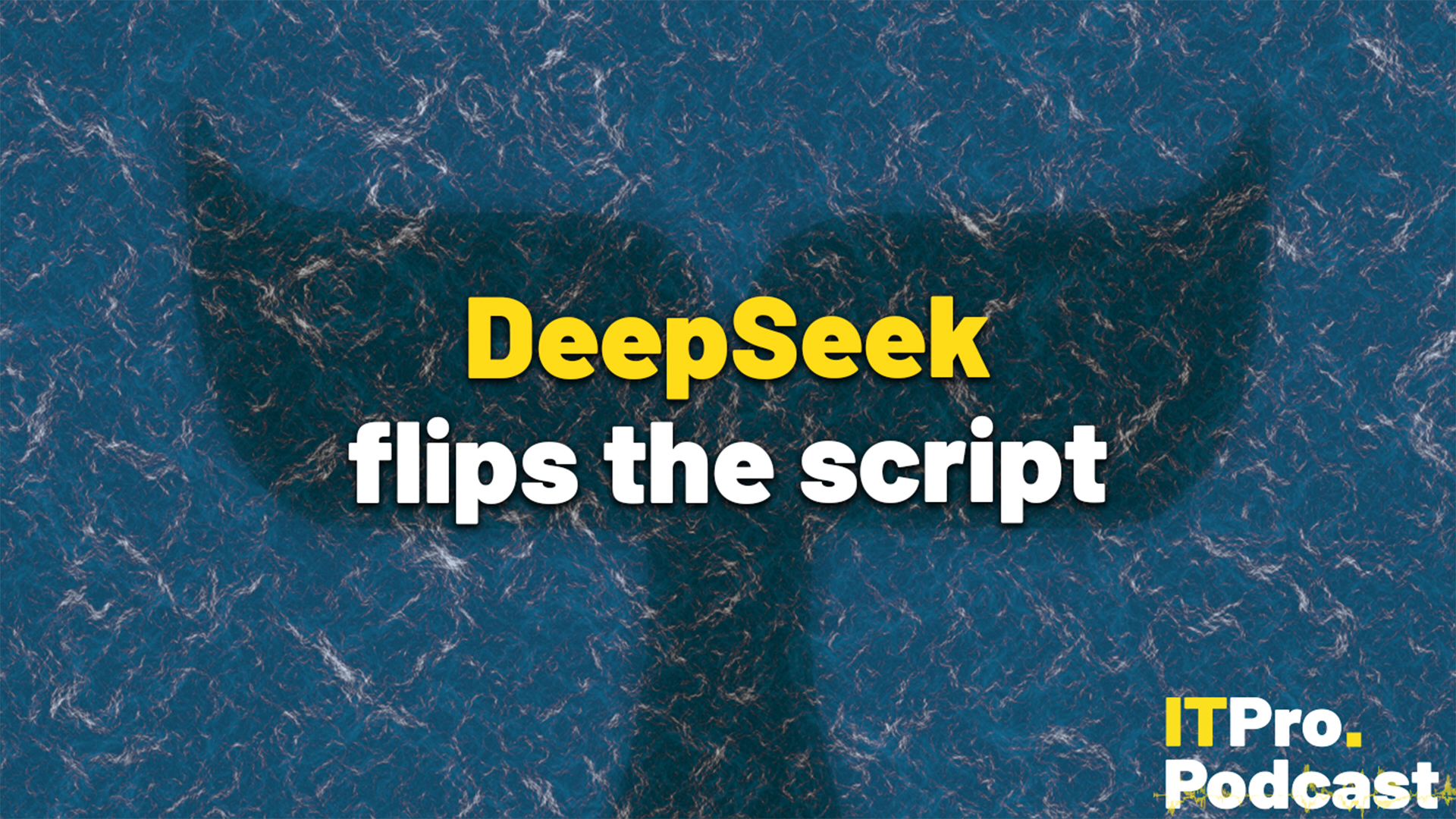 DeepSeek flips the script
DeepSeek flips the scriptITPro Podcast The Chinese startup's efficiency gains could undermine compute demands from the biggest names in tech
By Rory Bathgate Published
-
 SoftBank could take major stake in OpenAI
SoftBank could take major stake in OpenAINews Reports suggest the firm is planning to increase its stake in the ChatGPT maker
By Emma Woollacott Published